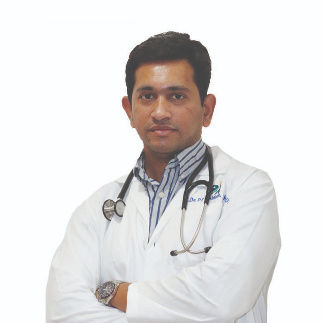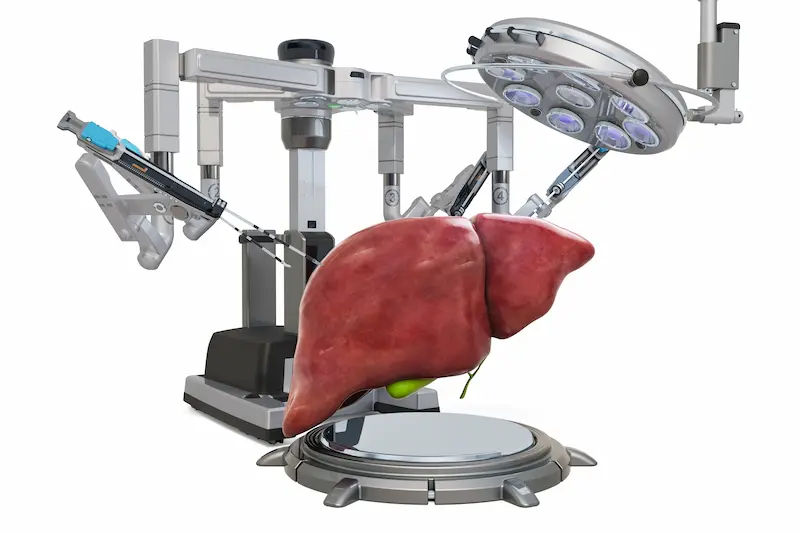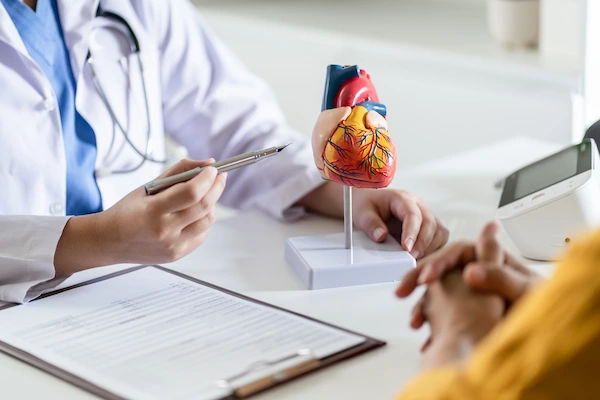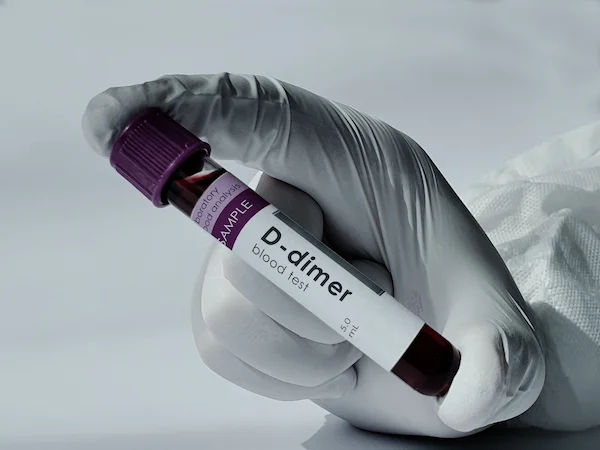Breathe Easy: Your Essential Guide to Lung Health Awareness
Learn how to protect and improve your lung health. Explore common threats, early warning signs, and proven strategies for stronger, healthier lungs.

Written by Dr. Siri Nallapu
Reviewed by Dr. D Bhanu Prakash MBBS, AFIH, Advanced certificate in critical care medicine, Fellowship in critical care medicine
Last updated on 13th Jan, 2026

Introduction
Every breath you take is a silent testament to the incredible work of your lungs. These vital organs are the unsung heroes of your body, tirelessly working to oxygenate your blood and fuel your every move. Lung health awareness is not just for those who smoke or have existing conditions; it is a critical component of overall wellness for everyone. From the air we breathe to the activities we choose, countless factors influence our respiratory system.
This comprehensive guide will empower you with the knowledge to protect, strengthen, and understand your lungs. We will explore common threats, identify early warning signs, and provide actionable strategies to help you breathe easier and live a fuller, healthier life. Your journey to optimal respiratory wellness starts here.
Why Lung Health is Fundamental to Your Well-being
Your lungs are the gateway between your body and the environment, performing a life-sustaining exchange of gases. Understanding their fundamental role is the first step towards prioritising their care.
The Vital Role of Your Respiratory System
Think of your respiratory system as a sophisticated life-support machine. When you inhale, you draw in oxygen-rich air. This air travels down your trachea and into a network of branching tubes called bronchi and bronchioles, finally reaching tiny, grape-like sacs called alveoli. Here, the magic happens: oxygen passes into your bloodstream, while carbon dioxide, a waste product, moves from the blood into the alveoli to be exhaled. This process, known as gas exchange, is fundamental for energising your cells and organs. Any compromise in this system can lead to fatigue, reduced cognitive function, and serious health complications.
How Poor Lung Health Affects Your Entire Body
The impact of diminished lung health extends far beyond shortness of breath. When your lungs are not operating efficiently, your blood may not become fully oxygenated. This forces your heart to work harder to pump oxygen-deficient blood throughout your body, leading to cardiovascular strain. Furthermore, chronic low oxygen levels (hypoxia) can impair immune function, slow wound healing, and reduce your overall stamina and quality of life. It is a domino effect; protecting your lungs is intrinsically linked to safeguarding your heart, brain, and entire body.
Consult Top Doctors for Personalised Advice
Common Threats to Lung Health You Should Know
Awareness of the risks is your primary defence. Modern life presents several challenges to our respiratory system, but most are manageable with the right knowledge.
Smoking and Vaping: The Primary Adversaries
Tobacco smoke contains over 7,000 chemicals, hundreds of which are harmful and about 70 that can cause cancer. These toxins damage the lung’s cleaning system, paralyse cilia (tiny hairs that sweep debris away), and cause inflammation, leading to chronic bronchitis and emphysema. A crucial point of lung health awareness is understanding that vaping is not a safe alternative. E-cigarette aerosol delivers ultrafine particles, heavy metals, and flavouring chemicals like diacetyl, which have been linked to “popcorn lung,” a serious and irreversible condition.
Environmental and Occupational Hazards
We often have less control over our external environment, but we can mitigate risks with awareness and preventive action.
1. Outdoor Air Pollution and Particulate Matter
Vehicle emissions, industrial smoke, and wildfires release particulate matter (PM2.5), ozone, and nitrogen dioxide. These pollutants can irritate airways, aggravate asthma and COPD, and increase the risk of respiratory infections and lung cancer. Checking daily air quality indexes (AQI) and limiting intense outdoor activity on high-pollution days are smart ways to improve lung health naturally.
2. Indoor Air Pollutants: Radon, Mould, and Chemicals
The Environmental Protection Agency (EPA) states that indoor air can be two to five times more polluted than outdoor air. Second-hand smoke, radon gas (a leading cause of lung cancer in non-smokers), mould spores, and volatile organic compounds (VOCs) from cleaning products and air fresheners are significant threats. Using air purifiers, ensuring proper ventilation, and testing your home for radon are essential proactive steps.
Recognising the Early Warning Signs of Lung Trouble
Your body often sends signals when something is wrong. Learning to recognise these early signs of lung disease is critical for early intervention.
Persistent Cough and Shortness of Breath
A cough that lasts for more than eight weeks is considered chronic and warrants medical attention. It could be a sign of asthma, COPD, or other conditions. Similarly, shortness of breath (dyspnoea) that occurs with minimal activity or at rest is a major red flag. It is not normal to be winded from walking short distances or climbing a small flight of stairs if you were not before.
Other Symptoms You Shouldn’t Ignore
Some symptoms may appear mild at first but should never be overlooked.
Wheezing: A whistling sound when breathing often indicates narrowed or inflamed airways.
Chronic mucus production: Producing phlegm for a month or longer could signal an underlying problem.
Coughing up blood: This always requires immediate medical evaluation.
Unexplained chest pain: Especially if it is lasting or worsens with breathing or coughing.
If you experience any persistent respiratory symptoms, it is crucial to consult a professional. If symptoms persist beyond two weeks, consult a doctor online with Apollo24|7 for further evaluation and guidance.
Proactive Steps for Healthy Lungs at Any Age
The good news is that lungs have a remarkable ability to heal. By adopting lung-healthy habits, you can significantly improve your resilience and function.
Lifestyle Choices: Diet, Exercise, and Hydration
The way you live day to day has a direct impact on lung strength and recovery.
Exercise: Cardiovascular activities like brisk walking, swimming, and cycling strengthen the muscles around your lungs and improve their efficiency.
Diet: Foods rich in antioxidants, such as berries, nuts, and leafy greens, can help combat inflammation. Studies suggest that vitamins C, D, and E are particularly beneficial for pulmonary function.
Hydration: Drinking enough water keeps the mucosal linings in your lungs thin, which helps them function better.
The Power of Lung-Healthy Habits
Small daily practices can build long-term resilience in your respiratory system.
1. Breathing Exercises to Increase Lung Capacity
Techniques like diaphragmatic (belly) breathing and pursed-lip breathing can help strengthen your diaphragm, slow your breathing rate, and improve the exchange of oxygen and carbon dioxide. These are especially useful for people with COPD and asthma.
2. The Importance of Regular Health Check-ups
Preventive care is key. During annual check-ups, your doctor can listen to your lungs and assess your overall respiratory health. If your condition does not improve after trying these methods, book a physical visit to a doctor with Apollo24|7 for a thorough examination. For those at high risk, such as long-term smokers, discussing the possibility of a low-dose CT scan for lung cancer screening is a vital part of early detection.
Understanding Common Respiratory Conditions
Knowledge of prevalent lung conditions can help you take preventive or management measures at the right time.
Asthma and COPD: Managing Chronic Conditions
Asthma involves chronic airway inflammation, leading to episodes of wheezing and breathlessness, often triggered by allergens or exercise. COPD (Chronic Obstructive Pulmonary Disease), which includes emphysema and chronic bronchitis, is typically caused by long-term exposure to irritants like cigarette smoke and is characterised by a progressive and persistent limitation of airflow. While there is no cure for COPD, its progression can be slowed with medication, oxygen therapy, and lifestyle changes, dramatically improving quality of life.
The Importance of Early Detection in Lung Cancer
Lung cancer is often silent in its early stages, which is why awareness of risk factors is so important. When detected at a localised stage, the five-year survival rate is significantly higher. This underscores the importance of screening for high-risk individuals, such as those with a 20-pack-year smoking history who currently smoke or have quit within the past 15 years. Apollo24|7 offers convenient home collection for tests that can be part of a broader health assessment, though cancer diagnosis requires specific imaging and biopsies.
Conclusion
Cultivating lung health awareness is an ongoing commitment to your overall well-being. Your lungs are resilient organs, and by understanding the risks, from smoking and pollution to the importance of recognising early symptoms, you are empowered to take proactive control.
The steps outlined here, from adopting healthier lifestyle habits to prioritising regular medical check-ups, provide a strong foundation for a lifetime of easier breathing. Remember, your respiratory health is a vital currency; investing in it pays dividends in energy, vitality, and longevity. Start today by incorporating one new lung-healthy habit and breathe deeply, knowing you are on the path to a healthier you.
Consult Top Doctors for Personalised Advice
Consult Top Doctors for Personalised Advice

Dr. P Sravani
Pulmonology Respiratory Medicine Specialist
3 Years • MBBS, MD
Visakhapatnam
Apollo Clinic Vizag, Visakhapatnam

Dr Rakesh Bilagi
Pulmonology Respiratory Medicine Specialist
10 Years • MBBS MD PULMONOLOGIST
Bengaluru
Apollo Clinic, JP nagar, Bengaluru

Dr. E Prabhakar Sastry
General Physician/ Internal Medicine Specialist
40 Years • MD(Internal Medicine)
Manikonda Jagir
Apollo Clinic, Manikonda, Manikonda Jagir
(150+ Patients)

Dr. K Prasanna Kumar Reddy
Pulmonology Respiratory Medicine Specialist
16 Years • MBBS, DTCD (TB&CHEST), DNB (PULM MED), FCCP
Hyderabad
Apollo Medical Centre Kondapur, Hyderabad
Dr. Naseeha Mohammed S V
Pulmonology Respiratory Medicine Specialist
6 Years • MBBS, MD ,DNB Respiratory Medicine
Bengaluru
Apollo Clinic, Sarjapur Road, Bengaluru
More articles from General Medical Consultation
Frequently Asked Questions
Q1. How can I check my lung health at home?
While a formal diagnosis requires a doctor, you can monitor your capacity with simple tests. The “match test” (trying to blow out a match from 6 inches away) or a peak flow meter can give rough indicators. However, these are not substitutes for professional evaluation such as spirometry.
Q2. Can lungs heal after quitting smoking?
Yes, absolutely. Within months of quitting, your lung function begins to improve. Cilia regrow and start to clear mucus more effectively, reducing your risk of infection. Inflammation decreases significantly over time.
Q3. What are the best exercises for lung capacity?
Aerobic exercises are best: brisk walking, jogging, swimming, and cycling. Activities like singing and playing wind instruments also engage and can strengthen the diaphragm and lungs.
Q4. What is the difference between asthma and COPD?
Asthma is often diagnosed in childhood and involves reversible airway narrowing, usually triggered by specific allergens. COPD is typically caused by long-term exposure to irritants such as smoke and involves permanent, progressive damage to the air sacs and airways.
Q5. How does air pollution inside my home affect my lungs?
Indoor pollutants like dust mites, pet dander, mould, VOCs from cleaners, and radon gas can cause chronic irritation, trigger asthma attacks, and increase the long-term risk of developing respiratory diseases and lung cancer.




